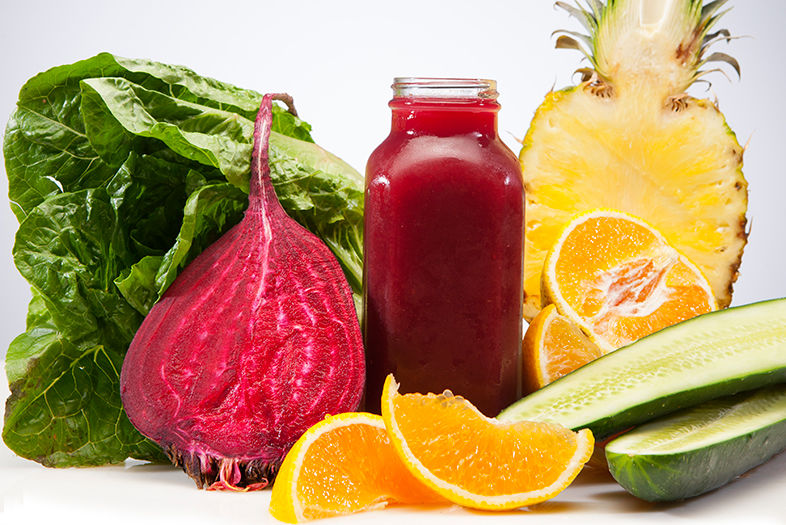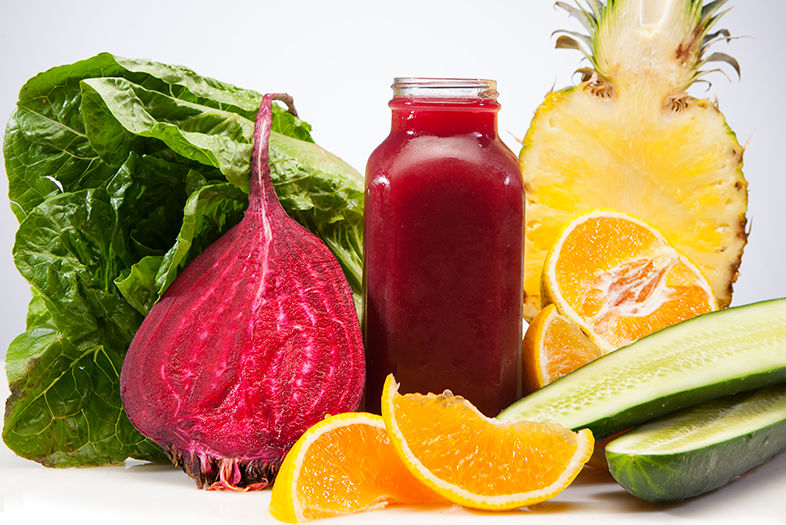Almond milk: A plant-based milk made mostly from ground almonds and water. It’s free of dairy, soy, lactose, and cholesterol and often comes with added vitamin D.
Cold-pressed: A method of minimally processing ingredients by first crushing the fruits and vegetables before pressing out the juice. While standard juicers kill most of the nutrients with heat, cold-pressing allows minimal air to mix in and oxidize the juice’s vitamins, trace minerals, and enzymes. These juices typically stay fresh for
72 hours.
Flash pasteurization: Heating perishable food at a minimum 161°F for approximately 15 seconds—temperature and time can vary by company—to destroy harmful micro-organisms. Also known as high-temperature/short-time pasteurization, or HTST.
High Pressure Processing (HPP): A non-heated application of high pressure to kill bacteria in food. This technique significantly extends the shelf life by 10 to 30 days.
Juice cleanse: A fast involving juice as a replacement for solid foods that lasts anywhere from a few days to a few weeks. The controversial process is said to give your digestive tract a break so it can more easily flush out toxins—a spring-cleaning of sorts.
Natural sugar: Unprocessed sugar that comes directly from foods, like fruit and milk, and is considered healthier than refined sugar (see below) because it comes with additional nutrients directly from the food.
Non-Genetically Modified Organism (Non-GMO): Plants or animals that haven’t been genetically engineered via gene splicing to increase the likelihood of desired traits, like nutritional content or drought tolerance. A fierce political debate rages on as to whether genetically-modified crops pose a health risk.
Organic: Fruits, vegetables, grains, dairy products, and meats that are grown without conventional fertilizers and weed killers and in a way that encourages soil and water conservation. For a product to qualify as “organic,” according to the USDA, only 95 percent of its ingredients need to be organic. So no, natural doesn’t necessarily mean organic. Look for the USDA’s stamp of approval for true organic products.
Refined sugar: Sugar that has been processed to remove impurities and color. There are many varieties, including powdered and sanding, but the granulated version we call table sugar is most common.
Probiotic: A type of bacteria that promotes digestion and keeps intestines healthy. Beyond supplements, this live organism is commonly found in yogurts, cheeses, and milk.
Superfood: A popular buzzword for any food that is thought to be particularly healthy and packed with more vitamins, minerals, antioxidants, and you-name-its than regular foods. That said, there’s little scientific evidence to prove just how superior they are.

Juice Glossary















